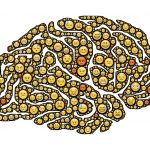What Athletics and Sugar Have in Common by Joan Kent, PhD
What Athletics and Sugar Have in Common
by Joan Kent, PhD
Athletic performance brings forward conflict: discomfort, anxiety, self-defeating thoughts, and doubts about what’s possible and what’s not.
In athletics, you do what’s necessary. You have the above thoughts without reacting to them – and you stay with the event. The athletic objective is to learn to be nonreactive to distractions. Including pain.
Giving up sugar can also bring forward discomforts – withdrawal symptoms and cravings. It also brings forward the anxiety, doubts, and self-defeating thoughts that may go with them. None of them is permanent.
You do what’s necessary to eliminate them and stay with the plan. You become nonreactive.
One Difference Is This
In athletics, it helps not to derive an identity from your performance. Identifying with your performance, my coach said, is just ego.
When it comes to sugar, I say what’s good about going through the process of quitting sugar is the sense of identity you develop when you do it. Your identity shifts.
You become The Person Who Doesn’t Eat Sugar, and things change.
• You stop finding sugary foods tempting. You know they’re Not Food.
• You deliberately and consciously stop putting junk into your healthy body.
• People stop trying to lure you with what you’d rather avoid.
• People stop giving you gifts of tempting, sugary treats.
It’s not that the foods don’t look appetizing or smell delicious. But they don’t bother us because we view them as something we don’t eat. We become nonreactive to them.
Those sugary foods are no longer who we are.
Brain Chemistry Puts a Space Around Sugar
Eckhart Tolle, who wrote The Power of Now and several other books, talks about “putting a space” around thoughts, pain, memories – especially negative ones – by continuing to stay present in the moment.
Basically, that’s becoming nonreactive.
Once this addictive food – sugar – has been removed from your diet, the healthful foods you’ve added along the way can – and will – enhance dopamine and improve your focus. It’s neurochemical.
Meanwhile, enhanced serotonin will put a space around what’s happening. It makes you less reactive to it by literally increasing the time between thought and action.
The Zen of Sugar
The non-reactivity holds true whether the trigger is external (seeing chocolate cake, smelling freshly baked cinnamon buns) or internal (having a small taste that triggers the desire for lots more).
I talk to my clients about eating to become stable. Stability applies to both brain chemistry and blood glucose.
When brain chem and glucose are stable and even, you’re able to make decisions about food, instead of reacting to every treat you see.
You make decisions, instead of succumbing to the urge to eat what you know won’t do you good – just because you can’t resist, or you think you have “decision-making fatigue.” Or you feel as if you’re running out of willpower.
Once my clients are stable, I know they’re on the “Zen path” to making clear decisions about food and sugar.
Currently, there’s growing awareness that sugar sabotages health and causes several health, appetite and mood issues.
I’m passionate about making it easy to quit sugar so you can transform your health, your moods and more. Just visit www.LastResortNutrition.com and grab your free Empowered Eating Consult. Find out how simple — and effective — it can be to put a space around sugar.



